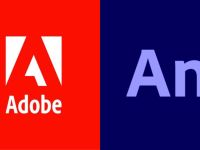On a recent visit to the region, Rein Willems, Executive Vice President, Business Units and Procurement, Shell Chemicals, talked to 'Shell in the Middle East'.
He spoke about the global changes that have taken place in Shell Chemicals - notably the divestment of the less profitable areas of the business to focus on areas where Shell has both technical and cost leadership - and outlined ways in which these changes will affect business in the Middle East.
We also touched base with Shell Chemicals' 'staff on the ground' in the Middle East - Ghassan Ashqar, Commercial and Operations Manager, Middle East and Pakistan, and Aman Amanpour, a Member of the Board of Directors of Sadaf (Saudi Petrochemical Company], and Sadaf Business Unit Manager.
"By focusing globally on a portfolio of seven products with similar selling and manufacturing characteristics, and by concentrating on bulk as opposed to packaged products, we have been able to simplify our distribution and logistics operations with a more focused service offering for our customers," says Rein Willems, Executive Vice President, Business Units and Procurement, Shell Chemicals.
"In the last few months, we have segmented our customers into five different categories and standardized these globally. This has been made possible by the greater efficiencies we have been able to achieve following our reorganization.
"In the Middle East, we have very cost effective storage and logistics facilities, and I must say that they have turned out to be very efficient for our present product range in the region, which is mostly focused on polyols and solvents.
"Now that we have our reduced portfolio, our intention is to focus on it and increase our sales volumes. In fact, we feel that, in the Middle East, so much growth has already taken place that we are examining the expansion of our storage facilities.
"Sadaf [Saudi Petrochemical Company] is one of Shell Chemicals largest petrochemical complexes and has enjoyed a long record of solid partnership with SABIC [Saudi Basic Industries Corporation] over the last 20 years.
As recently as two months ago, we commissioned new styrene facilities at Sadaf and believe there will be more opportunities to expand at Sadaf, if and when additional feedstock’s can be made available.
"The challenge today is the opening market of Iran and we are looking at how we can expand this market. We are involved with the National Petrochemical Company of Iran [NPC] to invest in a new petrochemical complex in Bandar Imam Khomeini to produce polymers and glycol, and we see this as part of our overall ambition to grow our chemicals business in the region.
"We are uniquely positioned with our present portfolio to grow in those product groups as we have both technical and cost leadership in most, if not all, of the products.
"Globally, Shell Chemicals has seen very significant staff cuts, particularly in America and Europe, where cuts have been made by as much as 50 per cent due to business divestments. In the Middle East, the concentration of sales staff was already based very much on our new portfolio, so the impact has so far been negligible by comparison."
Rein concludes, "It is never pleasant to make staff cuts, but times change. We now have a leaner organization with clearer accountabilities. At the same time, we are able to do a great deal more networking and we have given the 'staff on the ground' a lot more responsibility."
Ghassan Ashqar, Commercial and Operations Manager, Middle East and Pakistan, says, "The divestment of a part of Shell Chemicals' portfolio to focus on the foundation products has, of course, meant an initial reduction in sales volumes in the region.
"However, we are consolidating our position in the foundation products, which are mainly solvents and polyols, and have introduced Shell Chemicals' new operating model.
It calls for greater focus on the delivery of bulk petrochemicals to large industrial customers, using simpler structures to provide the lowest possible delivered cost.
"It has been an exciting time for me since I took over responsibility for the Middle East in July 1999," says Ghassan. "We have changed our way of operating to fit in with the new model.
We have significantly reduced our operating costs in the Middle East and Pakistan. We have closed the Shell Chemicals office in Egypt and appointed the staff who were running that office as our distributors for Egypt. We have also appointed a distributor in Pakistan.
"We expect further reorganization within the region to achieve optimum performance. We are committed to the polyols market, as well as solvents, and have appointed a Technical Service Representative to operate in the field, dedicated to service our customers.
"In the Middle East, we hold stocks of chemicals in two Shell Chemicals depots, in Dubai and Pakistan, and hold bulk stock at third party facilities in Aqaba, in Jordan, Beirut and Cairo.
"In the past 12 months we have made substantial increases in sales in the foundation products and look forward to this continuing in 2001.
We have optimized our logistics supply networks and we are sourcing products from the various Shell Chemicals companies around the world to obtain the best prices for our regional customers."
He concludes, "We are also developing our market in Iran and look forward to establishing a physical presence in Iran in the future."
Aman Amanpour, a Member of Sadaf's Board of Directors, and Sadaf Business Unit Manager, explains, "My job at the Sadaf Business Unit is to manage the business and its performance on behalf of Shell Chemicals and in the best interests of Sadaf.
My team and I are responsible for the global marketing of Shell's share of the products produced by Sadaf, in order to achieve the highest possible returns and in a sustainable manner.
"These products include EDC [ethylene dichloride], caustic soda, MTBE [methyl tertiary butyl ether], ethanol, and styrene - the latter being handled by our Singapore-based team.
"This year, the business performance of Sadaf has been very good and it comes on the back of the recovery of the global market, the rise in oil prices and the end of the Asian crisis.
"The rise in oil prices is one of the key factors which has led to greater profitability at Sadaf. The plant uses competitively priced gaseous feedstock, as opposed to oil products, which makes our operation during these times very competitive.
"Sadaf has also done a good job in increasing efficiencies and reducing costs, and has been successful in optimizing the supply chain from production to the customers. These achievements are being utilized for the benefit of our global customer base.
"Our customer base has been built up over a long time, and it provides us with continuity and the security of established relationships. We are, however, continually searching to find new business opportunities.
"We are also very aware of the speed with which change can take place in the markets today and we are keen to ensure that we can respond accordingly.
"Our forecasts for Sadaf's business for 2001 are good and we look forward to the further development of the complex and the safe and successful implementation of projects on the drawing board," he says.
Source: Shell Middle East.
© 2000 Mena Report (www.menareport.com)







